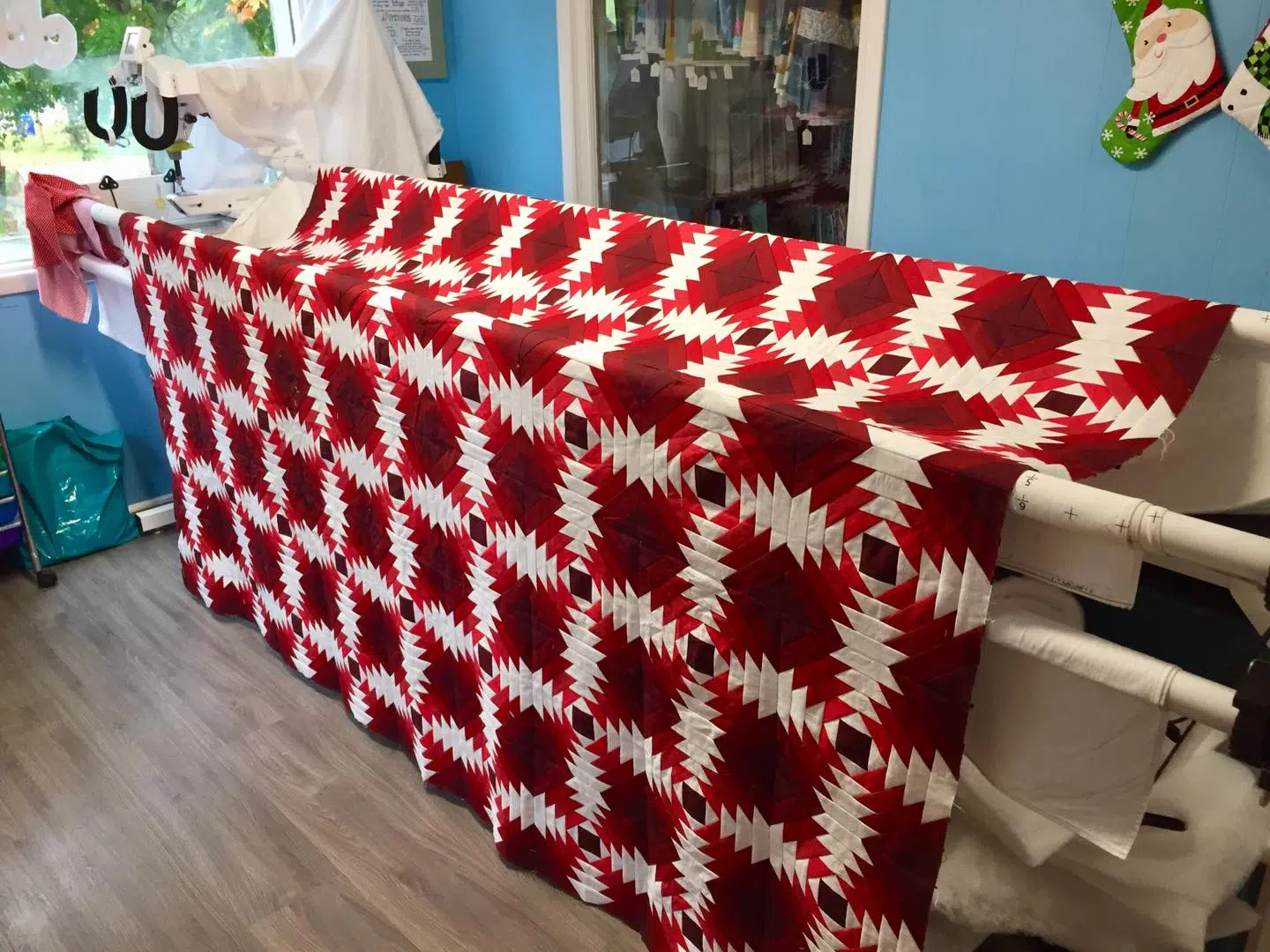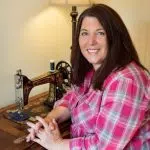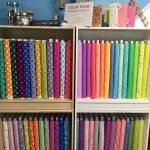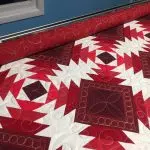
Quilt displayed across long arm quilting machine Image: Lisa Mosher.
Lisa Mosher couldn’t have predicted that she would be expanding KP Quilting Studio during a pandemic, but like many small business owners in the same boat, she made do.
Mosher started the studio three years ago, making quilts for friends and family with the intention of having a store down the line.
“I started plans on that at the beginning of 2020. I rearranged my house, my living quarters and my store quarters and built a store in my home,” she said, adding she also purchased a long-arm quilting machine. “Essentially, I was pretty much ready to open to the public when Covid-19 hit.”
She pivoted by shifting the store online, with its official opening in May, where customers were able to make their purchases online and pick them up from her doorstep.
“I was doing that for a bit before I was able to actually open to the public, so that’s really kind of what got me going,” Mosher said, sharing she had people wear masks before they became mandatory due to the small space of the store.
- Lisa Mosher, owner of KP Quilting Studio (Credit: Lisa Mosher)
- Popular quilting fabric brand Tula Pink (Credit: Lisa Mosher)
- Quilt closeup (Credit: Lisa Mosher)
Awareness about KP Quilting Studio grew through word-of-mouth, its Facebook account and Mosher’s lawn signs.
“Once I did actually open the store the foot traffic was actually quite a bit better than I expected because everybody was excited about a new store and new fabric to look at and a new person to meet,” she said, adding recent radio advertising has also increased foot traffic. “Quilters love having lots of choices, so another choice of place to shop was great in their books.”

KP Quilting Studio logo. Image: LisaMosher.
Mosher’s clients come from all walks of life and age ranges, from their twenties to their nineties. She has seen an increased interest in quilting, similar to the home improvement boom that left Home Depots with bare shelves.
“There’s a lot of new quilters and we have the wonderful social media channels that have tutorials that are so helpful to people who are stuck at home,” she said. “People I think are really stepping out of their comfort zone a little bit.”
Mosher plans to build a store on her property, and move it out of her house, within the next two years, and to purchase another long-arm machine in the next three-to-six months to keep up with demand.
“They’re quite an investment, you don’t run down to the local department store and buy one of these things, they usually have to be imported from somewhere in the States or in Upper Canada,” she said.
This story was originally published on Huddle.Today – an Acadia Broadcasting Limited content partner.









